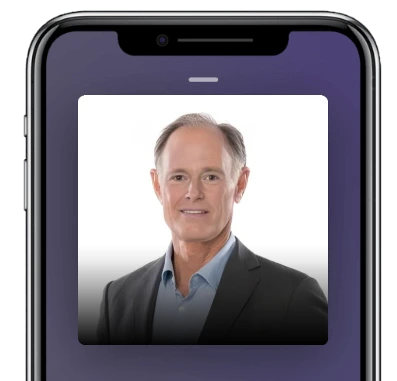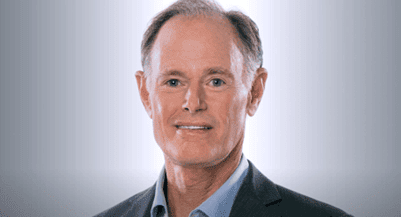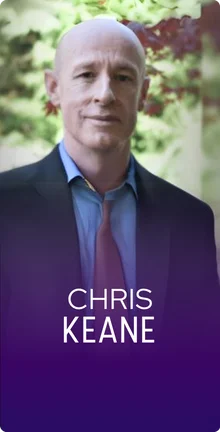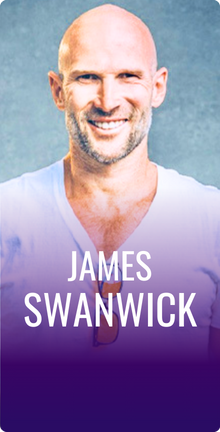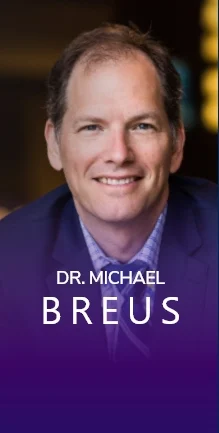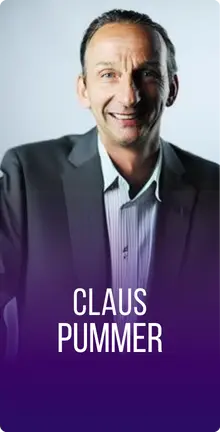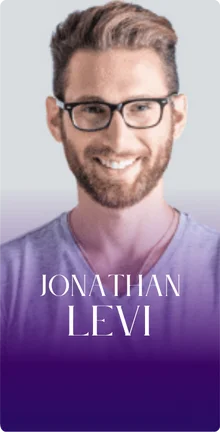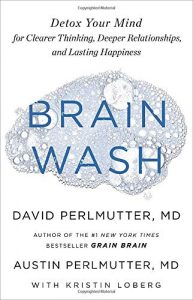
Dr. Perlmutter, it’s great to have you on the show.
Great. Thank you, Stephan. Delighted to be here.
I understand that Brain Wash is a huge game-changing book from your perspective. Let’s let our listeners know why that’s the case.
Most of my writing over the years has been in the area of chronic degenerative conditions like Alzheimer’s and Parkinson’s. Throwing a wider net to things like diabetes, cancer, coronary artery disease, etc. It really has leveraged the state of the art information as it relates to diet and other lifestyle choices like exercise, sleep, etc. in terms of how these factors influence a person’s risk for these chronic conditions. Mostly focus on the brain.
A couple of years ago, my son and I were in where I’m sitting right now. We were talking. He is a physician as well, an internal medicine specialist. We’re talking about what is the most frustrating part of our time practicing medicine. We realized that we do everything we possibly can to learn as much information as we can. We go to every conference we can, we read all the journals, we talk to people, we learn what we think is the very best information. That’s step one. Step two is we then do our very best to convey that information to the general public, to the one-on-one when we’re seeing patients. Then, that depends on step three. What is step three? Those individuals receiving the information, taking advantage of it, and making new decisions. Making decisions based on what we’ve told them, and what we’ve given to them.
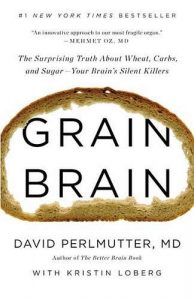
What we’ve learned is the best way to breakdown occurs. That’s the part of the flowchart that no one pays any attention to. It’s the bridge between information and action. We explore what is keeping people from making these choices. You know you want to lose weight, you know you want your blood sugar to be lower, you know that your blood pressure can come down if you engage in meditation, for example. But about 80% of what we and what doctors, in general, tell people is ignored.
We began looking at what is involved with people understanding things and then making those decisions. What we’ve learned is very interesting and this is the focal point of Brain Wash. We make decisions primarily out of the influence of two different areas of the brain. There is a bit of a power struggle going on between the prefrontal cortex up here, that is involved in decision making, looking at the long game, looking at how our decisions are not going to be affecting us in the next 10 minutes, but how they’re going to affect us in a day, a week, 10 years from now, planning for the future. Versus the amygdala, the more primitive part of the brain that deals with impulsivity, that says, “I’m going to just do this right now as an instantaneous response.” It’s really a reflexive versus a reflective type of mentality.
And that got us going. During the course of our research to write Brain Wash, we realized that many of our lifestyle choices affect our ability to either bring online the prefrontal cortex, plan for the future, be more empathetic, be more compassionate, versus the amygdala, being more narcissistic, being more impulsive. How so many of our lifestyle choices will choose for us, whether we’re going to use our prefrontal cortex or be locked into acting like a reptile, basically. It’s been a heck of a ride because what influences our ability to make good choices are things like getting a goodnight’s sleep, physical exercise, a low inflammatory-type diet, meditation, relationships with other people, and even exposure to nature.
The constellation in the aggregate, these events really is either changing us for the better or for the worst. That’s what went into writing this new book. One of the biggest players that’s affecting how people make decisions, in other words, raising their level of information and locking them into making poor decisions, is the standard American diet, the westernization of our diet. When we recognized that the western diet is spreading to all corners of the globe, affecting people’s decision-making, affecting levels of empathy, turning down levels of empathy, enhancing fear, and enhancing the us-versus-them mentality, it’s a scary proposition. We’ve identified existential consideration with respect to what’s happening to the global diet.
Would you say that people are becoming more narcissistic because of the standard American diet and we could actually reverse some of that?
There’s never been a study that proves that. We’re drawing that as a conclusion based upon what we’ve studied. We know that narcissism is rampant as evidenced by studies of narcissism, by applying standardized testing of people. Narcissism is increasing dramatically, especially in college-age individuals. But worse than that is this fear that’s being so enhanced in terms of people’s perception of the world around them and this us-versus-them mentality. This division amongst people that is so rampant in our country and between countries as well.
Flames is actually an interesting word because that’s where the word inflammation comes from. The flames are being fanned by inflammation. We know that inflammation cuts off our connection to that prefrontal cortex. Inflammation cuts us off from that part of the brain that allows us to see things from another person’s perspective, to be less fearful in our day-to-day lives, and more able to make decisions that thinks about how that’s going to play out in 10 years. That relates to our health, it relates to the following advice from physicians, it relates to making lifestyle changes that are good for us, and it relates to our relationship with the planet. It throws a wide net.
Understanding what’s going on just with the change in diet that we’re seeing around the planet was really an eye-opening experience. That westernization of the global diet has absolutely existential implications.
I believe that. When you wrote the book Grain Brain and you discussed the issues involving grains, glutens, and all that, with the impact on our brain, our overall health, and performance, quality of thinking. At the time, did you anticipate there would be a follow-on book on this book Brain Wash?
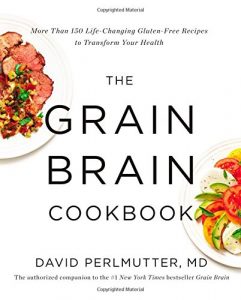
At that time, no. The natural follow-up book from Grain Brain was the Grain Brain Cookbook. What we began to explore was the interesting relationship between the microbiome, the gut bacteria, their metabolites, and brain health. We wrote the book, Brain Maker, which explores this relationship between the gut and the brain. Who knew? That was early on.
The experience in terms of understanding how very powerful the microbiome is, is not just in brain health, but in total body health, in disease resistance, resilience, and longevity. As you’re well aware, we know over the last few years, that’s gotten a huge amount of attention. After that, our book was the Grain Brain Whole Life Plan that began to explore how other things, including diet, how other lifestyle choices have such a great role to play. I say great because we can leverage these things to obtain better health. Following that is the revised edition of Grain Brain. You may call it the anniversary edition.
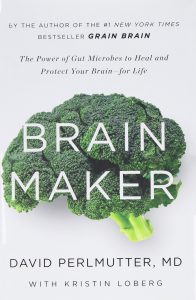
I was the editor-in-chief of a professional book called, The Microbiome and the Brain, whereby we have 12 different authors from various specialties. Some are from Harvard, some are from well-respected UCLA institutions around the country, each contributing a chapter, looking at the different lenses as to how the gut bacteria influence brain health and resistance to disease. I guess that’s part of health. A fascinating book that will come out very soon, and I served as the editor-in-chief of that book.
These concepts in Brain Wash look at our lifestyle choices from the perspective of giving the reader the opportunity to gain more control and to make better decisions. We all read books. We know basically what to eat. There are some wonderful books out there. Dr. Hyman has written a wonderful new cookbook. We see Whole30. There are just some great stuff out there, but all these books are useless until you implement what these wonderful authors are saying.
I think a lot of people buy a lot of books, watch a lot of programs, and download a lot of material, but it doesn’t help you one lick until you put those things into play. That’s the breakdown, that looks around.
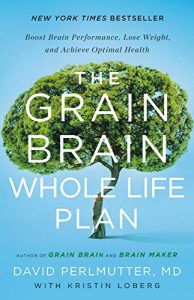
I think that’s a breakdown that happens, not just in our health but everywhere in business. For example, I have clients who I’ve done full in-depth comprehensive SEO audits of their websites and all the things that they need to do to rocket their rankings to the top, and they don’t implement. They don’t get the ROI and they’re not a referenceable client because the results aren’t there. That’s very frustrating, so I’m super selective with who I work with because I want them to implement.
It’s so true. As a matter of fact, I was interviewed a couple of days ago. It was basically about health, but the interviewer is taking some of the information because he does a financial advice podcast as well. He said what you just said, Stephan, that it must be frustrating for anyone giving learned advice to see the lack of follow-through in terms of the client. The client is paying, the patient is paying to receive this advice and with hopes of a result. Both the client and the individual purveying the advice are hopeful for a positive outcome. It raises both ships, but the outcome is really predicated on the implementation.
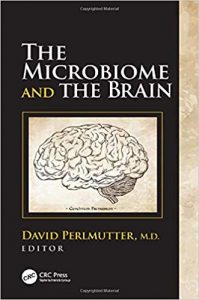
It’s that part of the brain that we really want to work on. That is allowing people to connect to the part of the brain that really lets you look at the long game. It lets you follow-through on the right health choices that are going to allow you to be resilient, have a long healthspan, hopefully, a long lifespan, or a better financial position, a sounder financial footing, if that is your goal.
Interestingly enough, what is so troublesome about at least the health sector, in terms of making the right choices is the bad choices that people make tend to foster further bad decisions. Why? Because as I mentioned, what threatens our good decision-making part of the brain, what threatens our ability to connect to that—we call it disconnection syndrome—is the very thing that is brought on by making bad decisions.
In other words, eat the wrong foods. You increase inflammation that distances you from the prefrontal cortex. So what do you do? You eat the wrong foods, you create a vicious cycle that is a feet forward cycle, meaning it gets worse with time. Another example, you don’t get restorative sleep. It increases inflammation. What do you? You make bad food choices and then you gain weight. What does that do? Worsens your sleep and there’s another foot forward cycle.
We all know that we do not make great decisions and have higher levels of impulsivity when we haven’t gotten a full night’s sleep. We know that. You get jet lag, you eat whatever, or if you’re under stress, if something really stressful happening in your life, you’re going to make bad food choices. What does that do? Increases inflammation locks you into the primitive brain that is impulsive bad food choices. All of these things that are in.
We are asking in Brain Wash, for 10 of your days. In each of those days, we are going to focus on things like, “Tonight, get a better night’s sleep.” How so? Turn off your screen earlier in the day. Don’t have caffeine after [2:00] PM. Make sure that you don’t eat really late or just before you go to sleep. Make your sleeping area, your bedroom a sanctuary. Cut off any exposure to light and sound as best you can. Turn down the thermostat a couple of degrees.
All of these things are geared (as it simply relates to sleep) to giving you not only a long rest but also a better rest. It’s not just the length of time that you are asleep, but it’s the quality of that restorative event that allows you to feel better the next day. Guess what? That will reduce inflammation, allowing you to better connect with your prefrontal cortex. Then tomorrow night, you’re more likely to implement those recommendations as it relates to sleep.
We could talk about nature exposure, about exercise, about diet, about relationships, all of these things enter into allowing us to connect to the decision-making apparatus that is a gift that we have as humans.
Our decision-making process is primarily influenced by the two different areas of the brain. It’s between the prefrontal cortex, which is involved in creating long-term goals, and the amygdala, the more primitive part that deals with… Share on XThat’s all great stuff. Just the stuff about sleep, specifically, we could go deep into that, but we’ve covered—
Deep sleep, I like that.
Right. It’s very important. I actually am wearing an Oura ring because I track my deep sleep. I want to know if I’m making changes, are those showing up in the numbers? “What gets measured gets managed.” It’s a famous quote from Peter Drucker, so I believe in that, that I need to know empirically and tangibly what my numbers are for my sleep, for my activity levels, for my heart rate variability, all that stuff.
Clearly, the Oura ring gives you very important information. For example, they’ll tell you how long did it take you to fall asleep, how much time do you spend in REM sleep, how much time you spend in deep sleep, and as you mentioned, what is your level of heart rate variability during sleep, we’ll have that in maybe in another conversation.
This is a very valuable information. I recently interviewed the founder of the Oura ring. A lot of great information, a lot of heart-centered reasons for the creation of this product. We need to understand that it’s not just that you slept for 7½ hours. It’s a great start, you’re ahead of most, but that you did get into some deep sleep for at least an hour or more. Activating in your brain the glymphatic system, whereby your brain is going to let you take out the garbage, clean out the metabolic waste that you’re brain accumulated during the course of the day.
New research shows that with interrupted sleep and not fully restorative sleep (that humans who let themselves have a spinal tap the next day in the research study), actually have higher levels of markers for what’s called beta amyloids. That’s the protein aggregates in the brain that correlates with Alzheimer’s disease. We really need to get, not just a good amount of sleep, but we have to look at the quality.
What you mentioned is you can check that every night by connecting your Oura ring to your smartphone and then you get a picture. I look at that and I wonder, what did I do last evening that might have been disruptive? Did I look at my computer screen? Did I eat too late? Did I eat the wrong foods? It really gives you feedback so that you can move forward. Like you say, you need that data so you can make changes.
I cannot overemphasize how important it is to get that restorative sleep. A third of American adults do not get enough sleep. It’s probably one of our greatest health issues. Not enough sleep translates to increased risk for diabetes, cancer, and even Alzheimer’s disease. Importantly, as I mentioned before, not getting enough restorative sleep increases the likelihood that you’re going to make poor food choices, which will make you fat, which will compromise your sleep, which will help you make poor food choices. All this feedback that we get like, you’re getting with your Oura ring is very important.
I have a few episodes for our listeners to check out, if they haven’t already, that are focused around sleep. James Swanwick, Dr. Michael Breus, and Claus Pummer, in particular. Those three episodes are phenomenal. Deep dive into sleep and how to improve that. I’m curious if you’ve come across BJ Fogg and his research about Habit Formation. There seems to be a piece there that I think could be very valuable incorporating that in as well.
I think back to The Doobie Brothers album, which was called What Were Once Vices Are Now Habits. It really gets back to an interesting statement by the Dalai Lama that says, “The brain we build reflects the life we live.” That we, through a process called neuroplasticity, figuratively and literally change our brains. We changed the wiring and the functionality of our brains. It really has to do with developing a brain on the plus side, that does what we want it to do, that is to see the world in a positive way, to make good connections, versus a brain that locks itself into what we’ve been talking about, the impulsivity center.
The more you do something, the more your brain changes to reflect that. That’s the beauty of neuroplasticity. Two things need to happen. First, we should do everything we can to enhance that process of neuroplasticity so that we can take advantage of it. Neuroplasticity, the connection of one brain cell to the next, was originally studied by Dr. Donald Hebb, a Canadian researcher who puzzled over what causes one neuron to connect to the next. He’s positive that there was some factors, some event, perhaps some chemical that would enhance this connection.
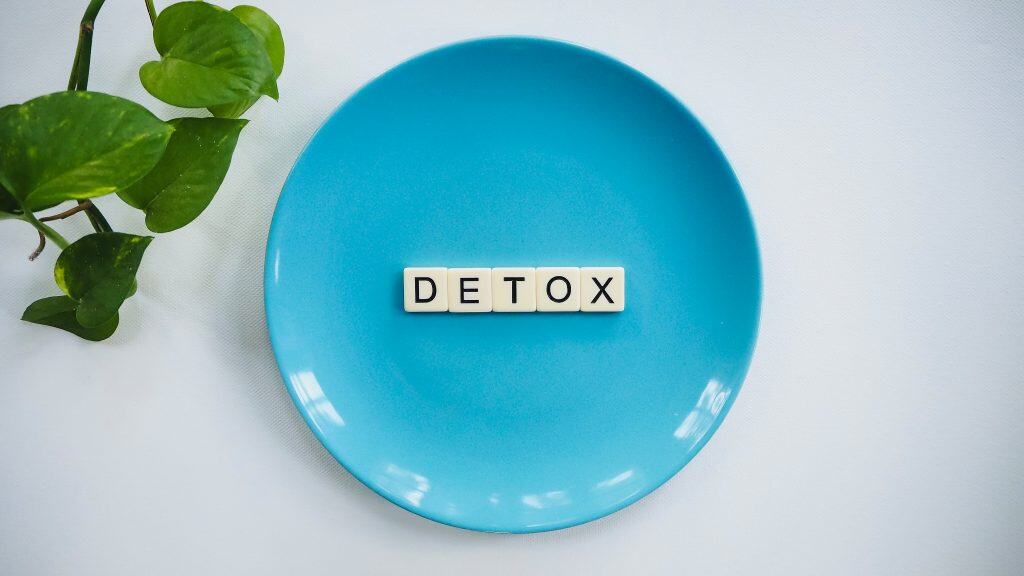
He didn’t discover that. It was discovered much later. There are, in fact, many chemicals. We call them trophic factors that will enhance the ability of one brain cell to connect to the next brain cell, so that we can have these networks developed that are fundamental to learning and to ingraining our habits, to making our habits a part of who we are.
The question is then, what can we do to enhance the process? It focuses on at least one important of these trophic factors called BDNF (Brain-Derived Neurotrophic Factor). How do you enhance it? That’s the gift of growing these connections. It’s also the gift interestingly, of growing new brain cells to start off with.
How do you enhance BDNF? One of the most powerful things you can do is exercise. We know that exercise activates the gene pathway to turn on the production of BDNF leading to more BDNF in the bloodstream, more growth of the brain’s memory center called the hippocampus, and better memory function.
As was recently described in a study, in which 100 individuals were either given an exercise program, 50 we’re given an exercise program or basically stretching, they were followed at over a one year period of time, and those three metrics were evaluated. Level of BDNF in the bloodstream, memory function, the actual size of their brain’s memory center called the hippocampus on very sophisticated MRI scanning.
The group that stretched had a decline in memory, had no change in their BDNF levels, and actually had a brain memory center, the hippocampus, that shrunk over time. As you might expect since we know that as we age, the hippocampus shrinks. The aerobic exercise group, on the other hand, worked by Dr. Eric Senet at the University of Pittsburgh, demonstrated an increased size of their brain’s memory center, growth of their memory center over the one year period of time in the group that did aerobic exercise.
We know we can amp BDNF and it has really positive consequences. Other things to turn on this connection chemical called BDNF? Turmeric. Again aerobic, but also, there are some evidences now that resistance exercise, dietary changes that reduce inflammation, a ketogenic diet, the omega-3 fatty acid DHA (Docosahexaenoic Acid—fish is brain food, which it is). These are important things that we should know about.
There’s one player called, a whole coffee fruit extract. For so long, people have been harvesting the coffee fruit. It’s not a bean. They call it a coffee bean, but it isn’t. It’s not a bean or legume. It’s a fruit. They harvest the coffee fruit and take the seed out, which was now the coffee bean and throw the fruit away. Some enterprising researchers said, “Gee, maybe the fruit can do something.”
They found that the extract of the fruit, aside from the bean, has this incredible ability to turn on the production of BDNF, helping us grow the brain cells, with neuroplasticity, choose our habits, choose what then becomes ingrained in us, allowing us to enhance our ability to learn things and to inculcate knowledge to the extent that it actually changes our behavior when we direct our attention towards positive things.
When we turn the news off a little bit and recognize that what we’re getting from the society around us, generally, it may not always be positive. What we experience on the internet is designed to suck our minds into black holes of emptiness and take us away from the things that really are more important, like connecting with people physically, eye-to-eye, engaging in connection with nature, engaging to exercising, meditation, and making lifestyle choices that can be a harbinger towards better health.
Getting a good night’s sleep, exercising, eating a low inflammatory-type diet, meditating, spending time with nature, and maintaining good relationships with other people are the greatest influencers in making a good decision. Share on XIt reminds me of something I learned in Kabbalah class, that when you focus on the darkness, you get more darkness. When you focus on the light, you get more light. Also, that when you focus on that darkness, or the void, or the lack in one area, let’s say it has to do with a relationship that’s not going well or your work, then that attracts more darkness, more lack, more void in all the other areas of your life. I found that pretty profound when I heard that.
It’s true. Again, to play on what that quote was from the Dalai Lama, “What we pay attention to physically and functionally changes our brains.” This was a central theme in the work of a Dr. Michael Merzenich in California, who really makes it clear that we are the architects of how our brain is structured and more importantly, how our brain functions, which means that we play a pivotal role in determining how we see the world around us.
Even in a simple process of inflammation—I say simple; truly it’s an incredibly complex—how inflammation brought upon us by our lifestyle mismanagement, threatens our ability to connect to that part of the brain that allows us to be more human, that allows us to see things from another person’s perspective, that allows us to distance ourselves from this us versus them mentality.
Therefore, become more empathetic and be able to plan for the future based upon our food choices, for example. We are really very empowered, aren’t we? We are now understanding that each and every one of us is the architect of our brains. Our choices influence dramatically how we view the world around us.
It’s so true. I’m curious, what your own personal regimen is, in terms of eating, morning rituals, sleep, hygiene, grounding, or earthing. What is your personal set of routines and best practices?
I would say that first, what has inspired me to adopt the changes have been several things. First, I’d say that staying on top of leading-edge medical literature, nutritional literature is certainly very influential. At the end of the day or even the beginning of the day, I rely on what our best scientists are uncovering.
Second, practicing medicine, interacting with people as their physician for three decades, and learning from them what seems to be working and what isn’t.
Third, rubbing shoulders with learned colleagues and interacting with people at meetings and even by this type of interaction with people like yourself, always gives me great information.
I think we’re on number four, I have a son who challenges me every single day in terms of what our message is, to step it up, challenge me with other views that may not be necessarily on message with what we are saying.
Finally, holding my father in my arms when he died of Alzheimer’s disease was also very impactful for me on many levels. It certainly encourages me to be very open with my outreach and to really push the outreach as far as I can. Knowing that what he died of is, by and large, preventable. But also influenced me to get back to your question, knowing that, because my dad died at a particular disease, there is some increased risk for me.
That motivates me then to make the following changes. I’m not going to rank these because that rank would change day-to-day based upon what I’ve been reading this morning or this afternoon. Sleep, as we talked about because it’s so important, is undervalued in our world, where we think that getting less sleep allows us to get ahead. That I believe is a wrong assumption. I think that the conclusion is based upon the old mentality of sticking your nose to the grindstone and staying up later than those with whom you are competing and being at the office earlier.
If you want to be productive, you need to get a good night’s sleep. Well beyond that, if you want to reduce inflammation, if you want to reduce your risk for things like cancer, diabetes, coronary heart disease, any of the chronic degenerative conditions, and even Alzheimer’s, get a goodnight’s sleep. If you want to be healthy and live a long life, you need to do that.
As you mentioned, you need to get some metrics as to the quality of your sleep. You have elected to use the Oura ring, as do I. Even having a laboratory sleep study is a good idea. I did that myself as well. I’m in bed early. I’m in bed now. Always, no later than [9:30]. I get a lot of sleep. I’m up pretty early as well, though I’m not generally by [6:00] in the morning. Well, let’s just take it from [6:00] on. In the morning, we have meditation. My wife and I, now our son is at home for just a few days, which is really quite wonderful.
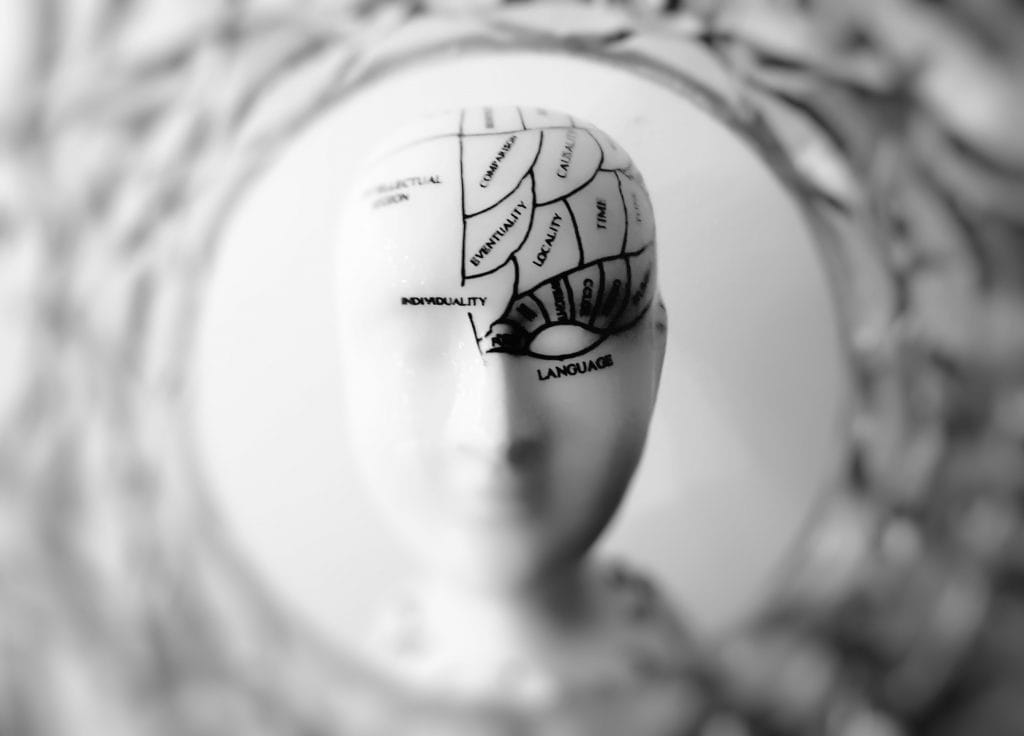
In fact, there is a Facebook Live about this. And my wife as well, when no one else is here. Crazy enough, we go out on the patio because we have two bird feeders out there. I love our bird feeders. We have blue jays, who come first, then come doves, blackbirds, and cardinals. The other day, we had a rose-breasted grosbeak, which I’ve never seen before, but I looked it up online that’s what it was. How cool is that? That’s a nature experience in the morning, but certainly not the last nature experience of the day.
In the morning, I drink coffee. In the morning I either run—I’m currently running about six miles at a time—or I will go to the gym, lift weights, and stretch a lot. Then I come home and I begin to write and read, read whatever is the latest thing sent to me, journals, begin writing, vlogs, writing a chapter in a book, or a new book, or whatever it may be. That usually continues until around about [2:00] or [1:30] in the afternoon, at which point, we have breakfast.
For me, it’s likely quite a strange breakfast by most people’s standards. Generally, chopped kale with avocado, pumpkin seeds, and lots of olive oil. If I want to get really bold, I will put some goat’s cheese in the salad, but generally, I don’t. In that, I want to opt for one meal a day being totally plant-based. I think that’s important, maybe we’ll touch up on why, at some point. That’s meal number one of two meals in a day. Not any real protein, unless I add in the cheese, which is a little smidgen of protein.
In the afternoon, I do a little bit more work. I practice guitar each day. By evening time, my wife and I get ready for dinner, that’s usually pretty early, that’s [5:30]-[6:00], which is early by many people’s standards. That’s when I will have with the vegetable and whatever else we’re having some form of protein. It’s either a plant-based protein—I love black beans, for example. I do love Spanish-Mexican cooking—or at least once a week, some form of seafood, which is wild. I tend to love salmon since I spend my summer in the Northwest. Last summer, my wife and I spent four months living on a boat catching salmon most days, crab, and shrimp. That was quite wonderful.
After dinner, we go for a walk. By then, the sun’s going down and that’s the signal to get ready for bed. It’s getting dark, melatonin levels are rising, adenosine levels are similarly affected, but more affected by caffeine early in the day, which is why there’s no caffeine after [2:00] PM, probably would be good if that were noon, noon for me, but we recommend [2:00] PM. That is the day. Get ready for sleep. It’s what we do and we’ll repeat it the next day.
Do you have a nighttime ritual that helps you to quiet your mind and reduce exposure to blue light and so forth? Are you wearing any blocking glasses?
I will say that I fall asleep within two minutes. That’s not a problem for me. I have other things. I am not perfect, but I fall asleep very quickly. I’m just not on the computer at night. We have amber glasses if there’s something we want to watch, but we generally haven’t been doing that and sleep is just getting better and better. If you have to watch tv, there’s something you must do, you gotta get an email out tonight, your computer very likely has a night mode on it as does your smartphone, but that said, if not, by all means, the amber-colored glasses are really terrific.
I think that it’s really good to get a hobby and to find something that really lets your mind enjoy the moment. I have several of those. I love fly fishing. I love to create flies. This is where I do it. Here is my fly time vice, I keep it right here. I spend a lot of time here at this desk. Here are some of the flies that I’ve tied, I enjoy doing that. It’s creative. Every time it’s a different color, different material, a lot of fun, and I play guitar everyday.
It reminds me of a friend of mine, Jonathan Levi who was also a guest on the show. He’s a memory and a performance expert, like high performance, brain stuff. His brand is SuperHuman. What he does is, he knits. He was like, “Oh, you got a baby on the way.” He says, “I’ll knit your baby a hat.”
That’s so cool. I had always wanted to knit. My wife knitted it all summer. All the way up to Alaska and back in our boat. I really would love to learn how to knit. I think that’s great.
Because it keeps your hand-eye coordination, your agility, and it gives you something to do while you’re thinking.
I think that would be a really cool thing to do, from the perspective of mindfulness, because you have to be mindful. You have to count your knits and your pearls, or however, it works. I think that would be a very good exercise in mindfulness. I’m going to absolutely look into that. That’s a great recommendation.
When inflammation manifests in your body because of poor health choices, it locks you into the primitive brain, which is responsible for impulsive bad decisions. Share on XAnother thing is, I have these meditation beads. There’s 108 of them and you just repeat a mantra 108 times. That’s something that I used to do as part of my morning ritual. I dropped that out of my morning routine, but I’m going to add that back in.
I think that it brings up the discussion of the practice. What do you do? What is your meditation/mindfulness/prayer practice? It looks like from the work of Dr. Andrew Newberg, for example, it may not really matter that much in terms of what it’s doing for your brain all positive, whether it’s mantra-based, whether it is breath-based, whether it’s religious prayer-based, or simply some form of mindfulness that you get benefits across the board. It’s the regularity of whatever practice that is, as well as to some degree, the time spent during that day-to-day that I think is the reason it becomes effective in doing the things that we know it does. It reduces stress, it reduces serum cortisol levels, reduces inflammation, enhances the function of the prefrontal cortex, and suppresses the function of the impulsive amygdala, which is our goal.
One interesting study that I reviewed an hour ago, look at this mindfulness as an intervention for loneliness. For this isolation that is so pervasive across the world and certainly across America. Despite this thing that’s called social media, that is also pervasive, making us more isolated than ever.
They took a group of individuals, I believe it was 50, half the group was followed over an eight-week period and the other half was followed, but was also engaged in mindfulness practice. What they studied was a metric of loneliness.
There’s an inventory of loneliness. This all goes back in 1980. They asked a series of questions and based upon those questions, they determine your loneliness rank on a scale. They studied that at the beginning, they also measure a couple of other blood markers at the beginning and after the eight-week period. Those blood markers looked at levels of inflammation in the blood and also the activity of a gene pathway that controls inflammation in the body.
What they found was very interesting. You probably know where this is going. Those individuals who are involved in the mindfulness program, compared to those who are not, showed a significant lowering of their loneliness score, and showed significant lowering of their inflammation markers, as well as the activation of the gene pathway that is involved in regulating inflammation. I’m not going to argue with that.
Whether you’re talking about loneliness or not, we know that meditation reduces inflammation. We know that inflammation is central to things like depression and chronic degenerative diseases. As we show in our new book, Brain Wash, inflammation is central to disconnecting us from that gift, the prefrontal cortex, the area of the brain that fosters good decision-making. It’s really important to target that.
I’m curious, how much time a day do you spend in the mindfulness practice or meditating?
20 minutes.
Okay. Do you do any grounding, where you take your socks and shoes off and you go walking in the grass, or anything like that?
I’ve been doing that my whole life, not because there were some therapeutic benefit, it’s just what I do. The answer is yes. I will tell you that it’s just how we are. We don’t have shoes in the house, therefore every time we’re outside, we are barefoot on the ground. I’ve been doing that since I was a little kid, as we have our children.
Again, I’ve never done that to ground. A good friend of mine, Dr. Stephen Sinatra actually wrote a book about it and has talked to me about it. I think it really got great potential. He’s never really been part of my messaging, only because I haven’t really studied it at great length.
Got it. Your diet, is it gluten-free, wheat-free, green-free? To what degree are you avoiding gluten and all that?
I do not have celiac disease, nor do I have non-celiac gluten sensitivity, which may be present in 30%-60% of the American population, but I still avoid gluten. Why do I do it? Because I think there’s enough research indicating that gluten, and its effect on gut permeability is a connection, a relationship that is present in everyone. I don’t need to threaten the integrity of my gut lining. Gluten represents that threat. That’s the reason I recommend gluten-free to everyone, not just those who think that they have a reaction to it. Certainly, it’s a powerful recommendation if you have celiac disease.
I do not avoid all grains, but at this point, I would say that I actually do. The reason I do is because right now, I’m training and I’m really restricted on carbohydrates, except for fiber-rich carbs. Would I eat sub whole grain rice or some non-GMO corn? Probably. But things like a chia seed, yes, I would have that and other non-gluten containing grains would be at least considered.
Right now, I’m being super aggressive for a number of reasons. It’s a very stringent diet and probably your viewers are saying that, “You don’t need to go overboard,” to the degree that I’m currently going overboard. Most of my diet is vegetarian-based. I opt for at least OMD (one meal a day) being totally plant-based and I’m really limiting protein consumption. I believe that are really good reasons for that.

We can talk about that, but the overview is, we realized that we generally eat too much protein. Yes, we need protein for muscle building if you’re weight training, which I am. We know that too much protein affects a certain signaling pathway in the body, involving some things called IGF-1 and something called mTOR.
Yes, protein through these pathways can be involved in building, but when you build, it’s like the old Ecclesiastes verses that were then put into a song by the Byrds. Turn, turn, turn. To everything, there is a season. A time to build up, a time to break down. We want to build up when we’re training, but we also have to value the breakdown of our tissues.
That’s really important. We have to remove the damaged parts of the cell. We have to remove damaged cells. We call this autophagy, “auto” meaning self, “phagy” meaning eat. We have to empower these processes within our bodies to get rid of damaged organelles, parts within the cells that are not functioning as they should be and even cells that are not functioning very well, need to be replaced.
We’ve got to amp up our surveillance system that goes around that is able to get rid of the defective parts. That is called autophagy. We enhance autophagy when these two things, IGF-1 and therefore mTOR are lower in terms of their activity. When we have too much protein on board, then these things are not lowered and we don’t get to take advantage of autophagy.
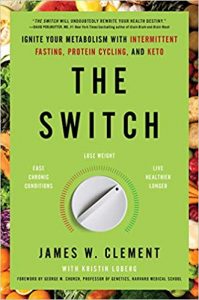
There’s a new book coming out called The Switch, which really is a book to look for. I’m sure people can find it right now, however they choose to look for books. It’s really is a wonderful, user-friendly explanation as to how this occurs and what you can do in terms of fasting, calorie restriction, reducing your protein intake to really take advantage of this powerful approach to extend your lifespan and to really help you become much more resistant to chronic degenerative conditions. I limit protein consumption. I love protein, but now, it’s down to not a whole heck a lot. Maybe the size of a deck of cards if I’m eating fish or maybe having chicken.
You said this one meal a day, completely plant-based, where did that come from? Why one meal a day? Why not just spread it out over three meals, or why not do two meals a day? I’m curious where that came from.
There’s a wonderful book called, OMD. It focuses on one meal a day and it’s written by a Suzy Cameron. I hope to connect with her in the next few days. I just stumbled upon somebody, who says, “I’ll make the connection.” She makes a very good argument in favor of throwing a wide net. You could tell everybody, “Look, you should all be vegan, you should all be vegetarian, you should all be keto, paleo, whatever it is, and you’re going to lose a lot of people. But to be inclusive, in this case, with being on one meal a day plan of being plant-based, you’ll get a lot more people.”
I think over the years, we’ve seen the arguments against the impact of animal protein, for example, animal products in our diets. People say, “Hey, animal products are having a huge environmental impact using a lot of water, using a lot of resources, etc.” You can look for arguments against that, but I really think it’s probably valuable information and I think it’s valid information.
I turn my back on it for years because I wasn’t willing to give up animal products. I think it does makes sense. I think with new information, with reference to life-threatening issues, as they relate to consuming too much animal protein, through maybe the mechanisms I’ve just talked about, this autophagy idea and increasing inflammation, it also makes sense.
Now, eating animal products, especially sustainable animal products like cheese and eggs, for example, doesn’t have an impact on that animal. That really opens the door to those who have chosen to not eat animal products because of compassion. I really want to say that I value that a lot in talking to those individuals who choose vegetarianism not just from a health perspective, but from the compassion perspective. That said, that opens the door to things that are sustainable like eggs and dairy products.
Not enough sleep translates to increased risk for diabetes, cancer, and even Alzheimer’s disease. Share on XAre there arguments against them? Sure, there are. In my day, if you ate an egg, my goodness, terrible things are going to happen to you, you’d have a heart attack the next week. Remember, the egg yolk was something to avoid. To this day, you see egg white omelets on the menus at restaurants for reasons not based in science. We know that eating eggs is not associated with coronary artery disease and as it relates to stroke, eating eggs is actually associated with decreased risk. Eggs were taken off the table for all the wrong reasons.
I remember there’s this cafe, not far from here, that has something they called a fitness omelet. That’s an egg white-only omelet and that makes no sense to me.
It’s so true. I travel a lot. I often will have my coffee in the morning in the hotel restaurant. Look at the menu for breakfast. I generally bring food along. Avocados travel great as do boiled eggs. You look at the power breakfast, it’s just something with granola, banana, some pancakes with maple syrup, that’s not empowering in any way, shape, or form for your brain, for your muscles, for your body. People seem to equate carb calories with energy because people feel the surge of energy. What a big mistake that is. You want to empower your body basically with fat, to a lesser degree of protein and carbohydrates, in my opinion. We could have a long discussion about why that is.
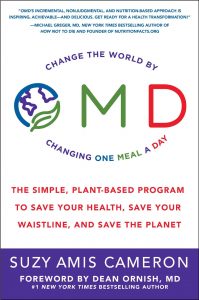
Anyways, I read this book called OMD, One Meal A Day, really made a lot of sense. Therefore, we actually put that in our new book, Brain Wash. The doctor who wrote Grain Brain just described or opened up the door to perhaps consider going one meal a day, plant-based. That’s where we are moving forward. It is a place of reducing inflammation, increasing compassion, and increasing empathy.
Do you also do intermittent fasting?
Actually, I do.
What’s the window? Is it like, over eight hours that you eat?
Intermittent fasting could be just postponing breakfast, or not eating for three days except for water. It really isn’t well-defined. Virtually every day, I’m involved in intermittent fasting because I have a very large window from dinner, which may end at [7:00] until lunch or breakfast, when I break the fast the next day, which is at [12:00] until [2:00]. To be sure, there is some discussion that the coffee I had in the morning might be breaking that fast, therefore I’m not gaining as much of the benefits, but for me, that’s necessary. Then there are the days when, probably once a week, where I won’t eat anything until evening time. It’s virtually 24 hours.
To me, as of the end of one, I find that the more my diet is modified, so that when I do eat, I’m having vegetable and wonderful sources of fat. The less I eat, the less I am hungry, I really find that having really measurable effects on this end of one, that I think are really positive. What are my metrics? My running times, my cognitive function, my mood. I’m really pleased with how that’s worked out for me.
I would say that, if challenged, we could go to the literature that supports this and why each of these changes in my lifestyle choices has been effective or could be effective. Plenty of people use safe intermittent fasting. Obviously, you’re then familiar with all the people who are talking about this. Satchin Pandas, Rhonda Patricks, and all the people who are really getting this information out there, that it’s very valuable.
Frankly, it really emulates what our hunter-gatherer forebears must have experienced. I can imagine three meals a day. I don’t know when that was invented. Remember we were told, “If you have three meals a day, you should probably have some snacks in between, just to keep your blood sugar level.” No, if you’re avoiding refined carbs and sugar, you’re blood sugar is going to be wonderfully level throughout the day. The way your blood sugar peaks and troughs is when you’re challenging your blood sugar by having exposure to sugar and refined carbohydrates. It doesn’t take much.
There’s not a lot of sugar in your blood at any given moment. If you have a blood sugar of 100, which is considered a pretty good blood sugar, you have about one teaspoon of sugar in your blood. Five grams of sugar, of glucose floating around in your bloodstream. You have one teaspoon of sugar in your entire five liters of blood, floating around in your body at any given moment. Think about that. If you have a blood sugar of 200, that’s really high. That’s only two teaspoons of sugar floating around in your bloodstream, in your entire body.
When I present that, it should be looked at in the context of food. When you’re eating, saying we have five grams of sugar floating around our bodies. When you drink a glass of orange juice, wonderful, fresh-squeezed orange juice, high in Vitamin C from Florida, great, that’s 36 grams of sugar right there. When you put those two things together, you’re not going to absorb all of those grams of sugar, but it’s no wonder that the foods we eat that have such high sugar, spike our blood sugar.
When our blood sugar is so high, our body says, “Holy Toledo. We got to lower that blood sugar because it’s really high.” We pound out the insulin from our pancreas and then that insulin drives that sugar into our cells and guess what? Our blood sugars plummet and then we are peaking and troughing throughout the day and not having a level blood sugar.
Which is not good.
And you don’t feel great. What do you do? You reached for the refined carbs. You reach for [10:00] in the morning, the cheese danish or whatever is in the vending machine because you are not going to make it till noon.
There’s that vicious cycle again.
You bet.
I know we’re out of time. I just have one more question, though, that we have an open loop on from earlier and that was, HRV, heart rate variability. What do you look for in your HRV scores? What numbers are you wanting? What do you do to improve your HRV?
We are the architects of how our brain is structured and more importantly, how our brain functions, which means that we play a pivotal role in determining how we see the world around us. Share on XFor just a moment, let’s just talk about what is HRV, heart rate variability. We’ve been thinking through the years that more regular is always better, regular hours of sleep, regular exercise, a regular perfect heartbeat. When we analyze the heartbeat very closely, we can see that there are subtle variations that you’re not going to pick up on an EKG. You’re not going to pick up when you measure somebody’s pulse. Even when you look at an EKG over a long period of time, you’re not going to see it because it’s too subtle. But new ways of using computer analysis of the heartbeat demonstrates that there is variability from moment to moment in the heartbeat.
It turns out, that is a positively good thing that is associated with decreased levels of stress. We want to have a better heart rate variability. That is something that improves with exercise and with a good night’s rest. Perhaps, one of the most powerful things that we can do to improve our heart rate variability, or HRV is to meditate, a really very nice relationship there. We know that heart rate variability is associated with a lower risk of things like, depression and higher levels of compassion. We want to get it up as best as we can, hence, meditation.
Now, you were describing how on your Oura ring evaluation at night. One of the things you look at is heart rate variability, as do I. To me, the higher the better. If you’re having your heart rate variability around 35-40, up to 50, that’s looking really good. I’m very confident with those numbers, I think they’re terrific. That is a metric that’s good to share with your viewers.
Everybody looks at, “Oh, my blood sugar is this. I’m in ketosis. I measured that this morning. I’ve dropped some weight, I don’t weigh as much. My body mass index, my body fat, my LDL cholesterol,” whatever it is. I’m really glad that you brought heart rate variability into the discussion because it’s the next generation. It is something that people are not looking at because it’s the first derivative of the heart itself. Now we’re looking at that. It used to be so hard to get that information, but with your Oura ring. I would encourage people to visit the HeartMath website to learn a heck of a lot more about HRV and it’s implications in terms of health.
The first version of the Oura ring didn’t have HRV capabilities, but now at version 2 it does, which is really exciting.
The new version also will allow you to measure HRV moment-to-moment during your activities, so you can see how your heart rate variability might change, for example, by going into a park and walking around versus when you’re in a busy city and fighting traffic.
All good stuff.
Real good stuff.
How do we get folks to pick up your new book and to learn more? Maybe you have some online courses, or anything like that, that we could send them to.
Lots of ways. The new book is Brain Wash. Here is what the cover looks like, there’s a brain and there are some soap bubbles. It’s brain wash in a positive way. That’s available everywhere. The website for the book is brainwashbook.com, who knew?
My website is, drperlmutter.com. We spend a lot of time, done a lot of work to make that website as informational and as empowering as possible. We have thousands of peer-reviewed studies on the site that is fully searchable in their full PDF form. All my blogs, all my videos are there. The videos I’ve done interviewing interesting, wonderful people like you. That’s a great place to go. Let me say, Stephan, thanks for our time together today.
Thank you. This was really valuable and inspiring, too. It’s great to hear your own personal story, how you apply the stuff. You’re eating your own dog food, so to speak. Applying the stuff that you want the world to know how to apply in your own life.
I’ve never actually heard that. I’ve walked the talk, maybe might be a little better.
Exactly. Thank you so much. Listeners, please take some action from this. I know that it may seem a little daunting to make all these changes all at once. Make maybe just one big diet change, one exercise change, or something that’s going to move you forward and get that momentum going, and unlock the power of your prefrontal cortex. This is your host, Stephan Spencer, signing off.

